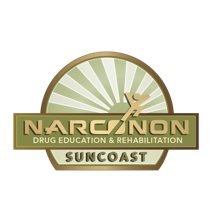Navigating Addiction: Signs Your Friend Needs Support

It’s hard to watch someone you care about struggle with addiction. You may be getting to the point where you feel helpless and your hope for them to fight the addiction is waning. Sometimes a real and honest conversation is all it takes to help an addict realize they have a problem and seek help.
More often than not, though, the person with the addiction has a hard time admitting the severity of the problem. If this is the case, it may be time to give your loved one the support they need by planning an intervention.
Is An Intervention Needed?
In certain situations, an intervention may be the life-saving wake-up call an individual struggling with drug addiction needs to turn their life around. An intervention is the process of confronting your loved one face to face to talk about how their addiction has affected not only their own life but the lives of those close to them.
It is also an opportunity to ask them to seek treatment for their addiction. Interventions must be carefully planned and are often accompanied by a professional interventionist to help guide the process. Other family, friends, or members of their faith may also be invited to attend. Typically, it’s important to ensure that anyone attending is there with the intention to support and help, not to accuse the addicted individual of being wrong for their misdoings.
How to Know When It’s Time to Help
Life wasn’t meant to be traveled alone. We all need help sometimes—especially those struggling with addiction. Consider these signs to determine if your loved one needs more hands-on support.
Your loved one is denying that they have a problem.
This is one of the key signs that your support through an intervention is needed. Addiction is likely ruling their life and creating problems with work, their health, and relationships. You can see it, but they can’t or won’t. Many addicts believe they have control over their substance abuse, but most have lost control and are unable to see it.
There is a significant increase in drug or alcohol consumption.
Have you noticed that your loved one is drinking more often, taking their prescription in larger amounts, or using more frequently? When a person becomes addicted, they begin to build higher tolerances and need larger doses to get the same level of drunk or high. This is a definite sign that they need help. Increased doses can lead to overdose, alcohol poisoning, or have long-lasting negative side effects on their health.
Their behavior is becoming dangerous.
When your loved one is under the influence of drugs or alcohol, they often lose sight of how they are affecting others, whether they have previously overdosed and are in denial of how dangerous their addiction has become or they’re getting behind the wheel drunk and endangering those around them.
They are showing concerning changes in personality and behavior.
Everyone goes through emotional slumps from time to time. However, drug addiction is often accompanied by feelings of increased agitation and unpredictable mood swings. People struggling with addiction often try to hide it, which can also lead to their feeling withdrawn from those they used to be close to. These feelings can intensify, leading to increased drug use and mental health issues.
How to Show Your Support
If you see any of these signs in your friend or family member, they need help and a foundation of support to see how their addiction is affecting them. This can be done through an intervention or by directing them to a drug treatment center.
Drug treatment centers, like Narconon, are dedicated to helping individuals not only fight but win their battle with addiction. Graduates of the Narconon program go on to lead healthy, drug-free lives. Get help today!


